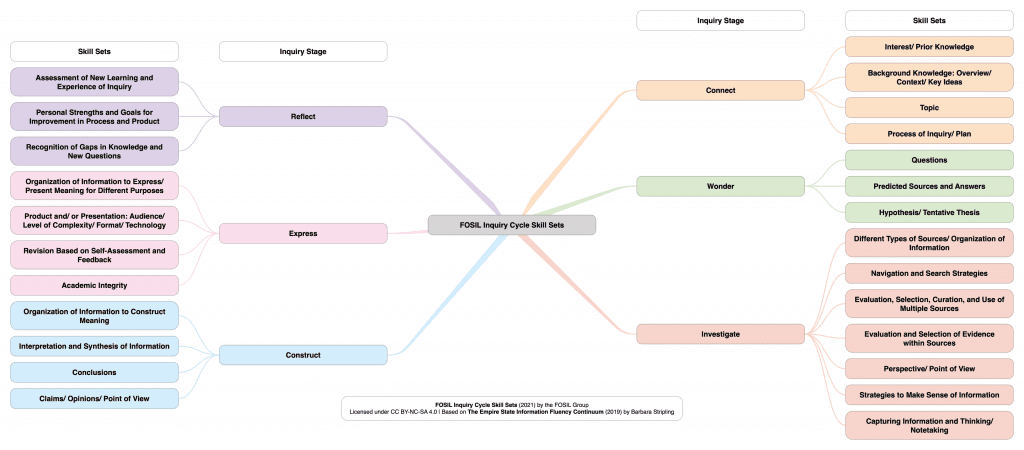One of the aspects of study this week was discussions and readings around information literacy models alongside inquiry learning models. I found the information inspiring and also, overwhelming! There seems to be much work to be done to see this type of deep learning embedded into the curriculum across schools in Australia. In my current context, there are small shoots of this kind of learning occurring, but to see the whole process as it should be – makes me aware of how much work is to be done.
I took a deeper look at Kuhlthau’s Information Search Process, which outlines six stages of process – Initiation, Selection, Exploration, Formulation, Collection, and Presentation. This process is described as a holistic view and is driven by the user’s awareness of a lack of knowledge in an area. The information seeking is driven by a desire to find out the information not merely for information’s sake, but as a means to accomplish something tangible at the end of the cycle.
What struck me about this particular model was the overlapping acknowledgement of the person’s experience within this process, which is tracked by the three realms of experience: the affective (feelings), the cognitive (thoughts) and the physical (actions). This to me seems like the kind of learning that incorporates the whole self, and one that would drive deep, authentic learning, where the information seeking is not just about finding what you need; but the process of learning that occurs along the way.
This model offers a framework of information seeking that could be implemented by a TL, however, time is an essential component in this model if it is to be explored and its full merits beneficial.
I also chose to look further into The FOSIL Cycle, as a model for inquiry. It has 6 stages: Connect, Wonder, Investigate, Construct, Express, Reflect. One thing that struck me about this model was the double ended arrows between each cycle, assuming that learners would move back and forth between the cycles as they engaged in the inquiry process. This kind of non-linear learning is very true of what we often see of students in the primary and secondary context. One step forward, two steps back is common as they engage in learning that is challenging and new.
The FOSIL Cycle also describes various skill sets, which could then be identified and built upon if identified as places that need strengthening in the life of a learner. I have included a diagram that explains these below:

Image taken from: FOSIl Inquiry Skill Sets (2021) by the FOSIL Group.
A key challenge I see for teacher librarians in both of these models is time. In order to be successful, students will need the time and space to engage fully in each process. In an already full curriculum and school calendar, alongside challenges of engaging with busy teachers, this type of learning needs to be a priority for school leadership to ensure it gets the time given.
References
Kuhlthau, C.C. Prof. (2018) Longitudinal Evidence of the Influence of the ISP on Information Workers. Retrieved from: https://web.archive.org/web/20210428065707/http:/wp.comminfo.rutgers.edu/ckuhlthau/information-search-process/
The FOSIL Group (2021) Learning by finding out for yourself. Retrieved from: https://fosil.org.uk/fosil-cycle/
